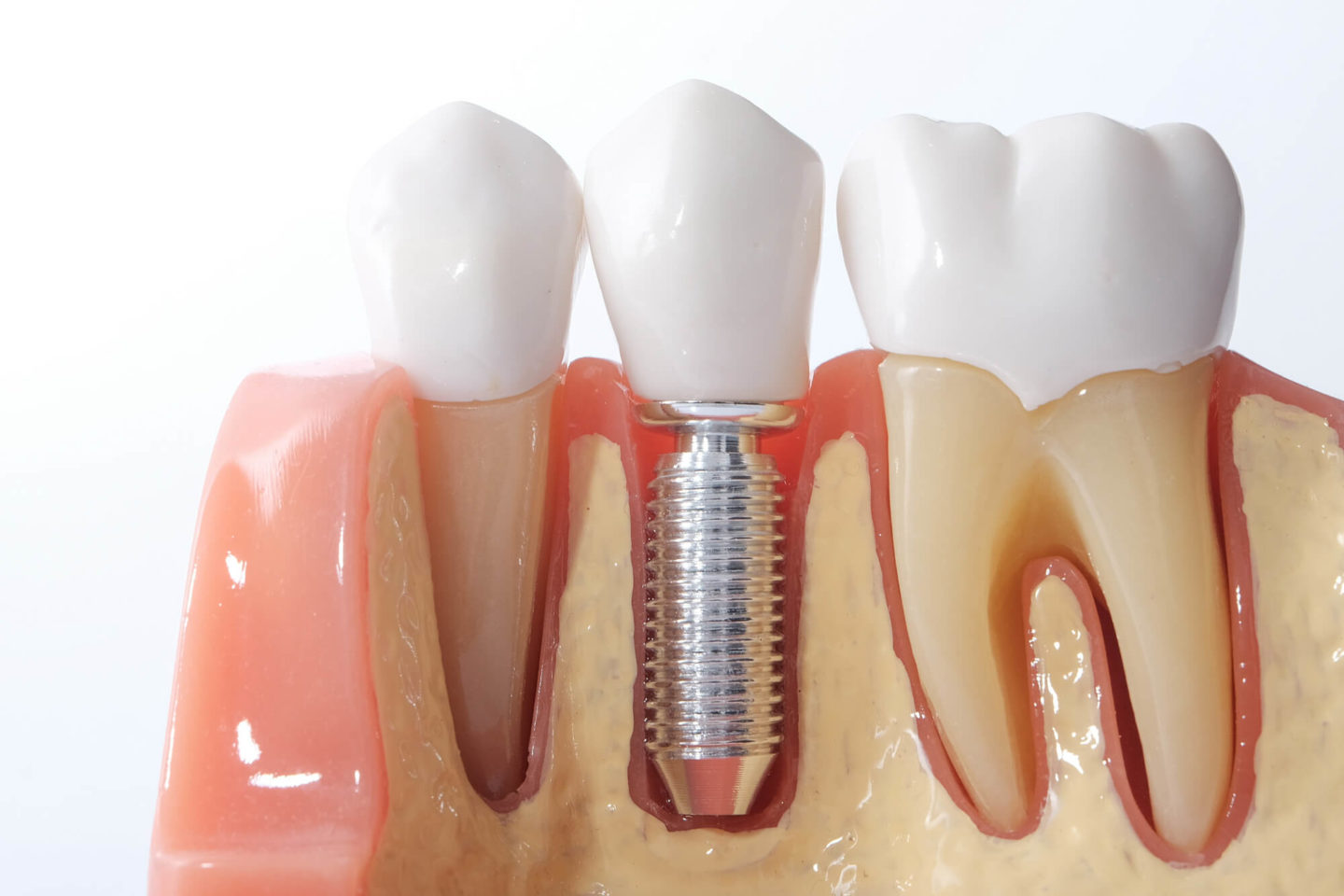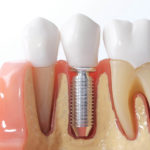
If you have a tooth missing, it can make you feel very self-conscious about the way that you look. It can also cause you issues when you’re eating and leave you prone to developing infections.
To help to solve all these problems, you could replace these teeth.
There are several options for replacing your teeth. You could choose to have dentures, dental bridges, or a dental implant.
Dental implants are the most effective way of replacing missing teeth, but with the dental implant procedure being quite significant, you may worry about the potential risks of dental implants.
Around 3 million people in the US have dental implants, with around 500,000 new implants being placed each year.
In this article, read about those risks and learn what you can expect from the process.
What Are Dental Implants?
Dental implants are replacement teeth. Unlike dentures or dental crowns, these are permanently fixed into place. This is done using a titanium screw that attaches the replacement tooth, or crown to your jawbone.
The crown itself is designed to match the appearance of the rest of your teeth. This will mean that your dental implants look completely natural.
There are two main types of dental implants; Endosteal and Subperiosteal.
Endosteal implants fit directly into the jawbone. These are the most commonly used dental implants.
Subperiosteal implants are useful for people who don’t have enough healthy jawbone, or that don’t feel comfortable going through the bone augmentation process associated with Endosteal implants.
Are There Any Risks of Dental Implants?
Dental implants are safe when they are carried out by an experienced and qualified dentist or surgeon.
Some groups of people will be at a high risk of developing an infection when having dental implants. For this reason, it will not be safe for a surgeon to carry out the dental implant procedure.
Those affected will include people who are suffering from an acute illness, those with an uncontrollable metabolic disease such as diabetes, or people suffering from soft tissue or bone disease.
Your dentist may refuse to carry out the dental implant procedure if you have osteoporosis, HIV, AIDS, or if you smoke heavily or grind your teeth.
There is a risk of some complications occurring following the procedure. These may include:
- Damage to the nerves affecting feeling in the area
- The implant moving
- The implant becomes exposed above the gumline
- Infection
- The incision re-opening following the surgery
Following your dental implant procedure, your dentist will make follow up assessments to ensure that the process has been a success.
If you have any concerns about the risks of dental implants, speak with your dentist prior to having the procedure carried out.
Who Is a Suitable Candidate for Dental Implants?
Before you can have dental implants, your dentist will need to find out some information about your medical history first.
They will need to know about any existing conditions that you may have to ensure that you are not in the high-risk category for having the procedure.
They will also ask you some general questions about your lifestyle.
To ensure that your dental implant procedure is going to be effective, they will also need to make sure that your jaw is suitable.
If your jaw is weak or not strong enough, it may be suggested that you have a bone graft, or that you have an alternative procedure.
Your dentist will also talk you through the entire process to ensure that you understand everything involved.
How Does Tooth Implant Surgery Work?
The dental implant procedure is carried out in several stages. First, the dentist will remove any remaining damaged tooth. Once this has been done, if you need to have a bone graft to improve your jaw, this will be done.
Following a bone graft, it can take several months for the bone to be ready for the next steps. Once this has been carried out, your dentist will prepare the jaw.
To get your jaw ready for your dental implants, your dentist will create a small incision in your gum. Then, they will drill into your jaw to get it ready for the implant to be placed.
It can take several months for the bone to be ready to take the implant after it has been prepared. Once your dentist is satisfied that it is ready, they will place the abutment. This is the screw-type piece which will eventually hold the crown.
To create the perfect crown for your teeth, your dentist will take impressions of the inside of your mouth. This will help them to create a tooth that fits perfectly alongside your natural teeth.
The color of this can be exactly matched with its neighboring teeth.
What can You Expect from the Process?
Everyone is different. There are several factors that might affect the experiences that you have when you have a dental implant procedure carried out.
These will include:
- The number of teeth that need replacing with implants
- Where the implants will be within the jaw
- The amount of bone in the jaw and its quality
- The existing health of the person’s teeth and gums
These specific situations will affect your recovery time for each of the various stages of the implant procedure.
Your dentist will be able to talk you through what you can expect from the process in your specific circumstances.
Book Your Appointment Now
The dental implant procedure is a complex but effective process that improves not only the look for your teeth but also the functionality. Having dental implants can help your overall oral health too.
If you have any concerns regarding the risks of dental implants, speak with your dentist.
To discuss whether you are a suitable candidate for dental implants, get in touch today to make an appointment.

